Pop Culture
Aria of X:IN officially becomes the second Indian to become a K-pop idol after Sriya Lenka
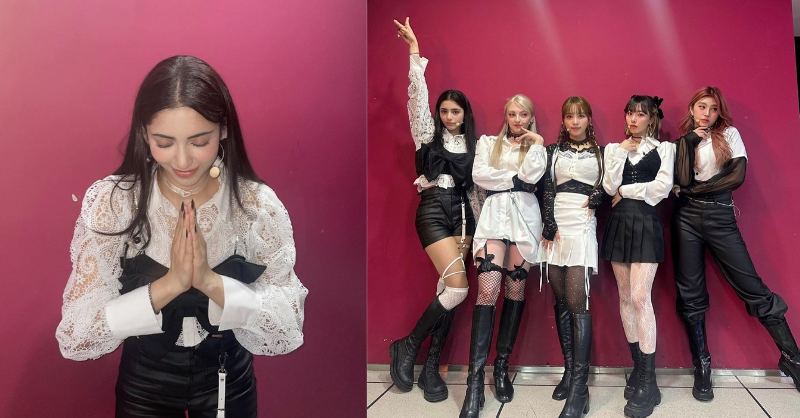
K-Pop Takes India by Storm as we see another young talent from India joining the wave. Scroll down to know more about Aria of X:IN.
Over the past few years, K-pop has taken the world by storm, and India is no exception. The Korean pop culture wave has been sweeping the nation, and it has given birth to a new generation of K-pop enthusiasts who are passionate about the genre. And someone who is into it won’t be unaware of the fact that the Korean entertainment industry has quite an impact on young people in India. Just last year we saw Sriya Lenka creating her legacy by being the first K-pop idol from India and we all saw people go crazy over this news. Well, we now also have Aria joining the race as the 20 year old becomes the second K-pop idol from India. Gauthami aka Aria of X:IN found her interest in the Korean entertainment industry and did everything she could to make her dream come true. The whole country is proud as she officially joins this wave by joining a five member band named X:IN that made its debut this year with their first ever album, “Keeping the fire” which was released on 11th April. Aria joined GBK Entertainment and became their trainee on their online training platform with the name Ami.
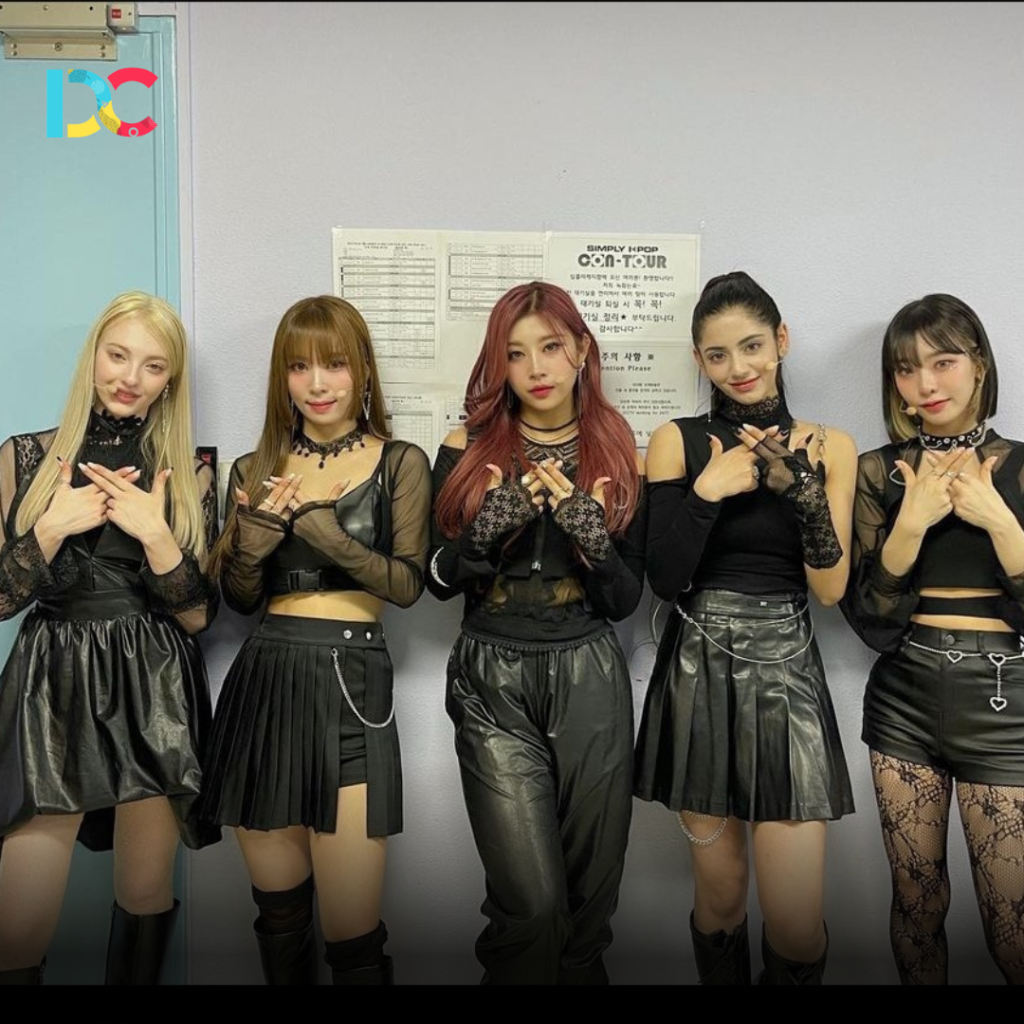
She later changed her name to Aria when she was about to join the agency’s upcoming girl group called MEP-C but very recently she was revealed as the fifth member of the group X:IN. What has just added on to our excitement is the fact that Aria also became the first Indian ever to perform in the South Korean music program SBS Inkigayo as the band performs their debut song “Keeping the Fire”.
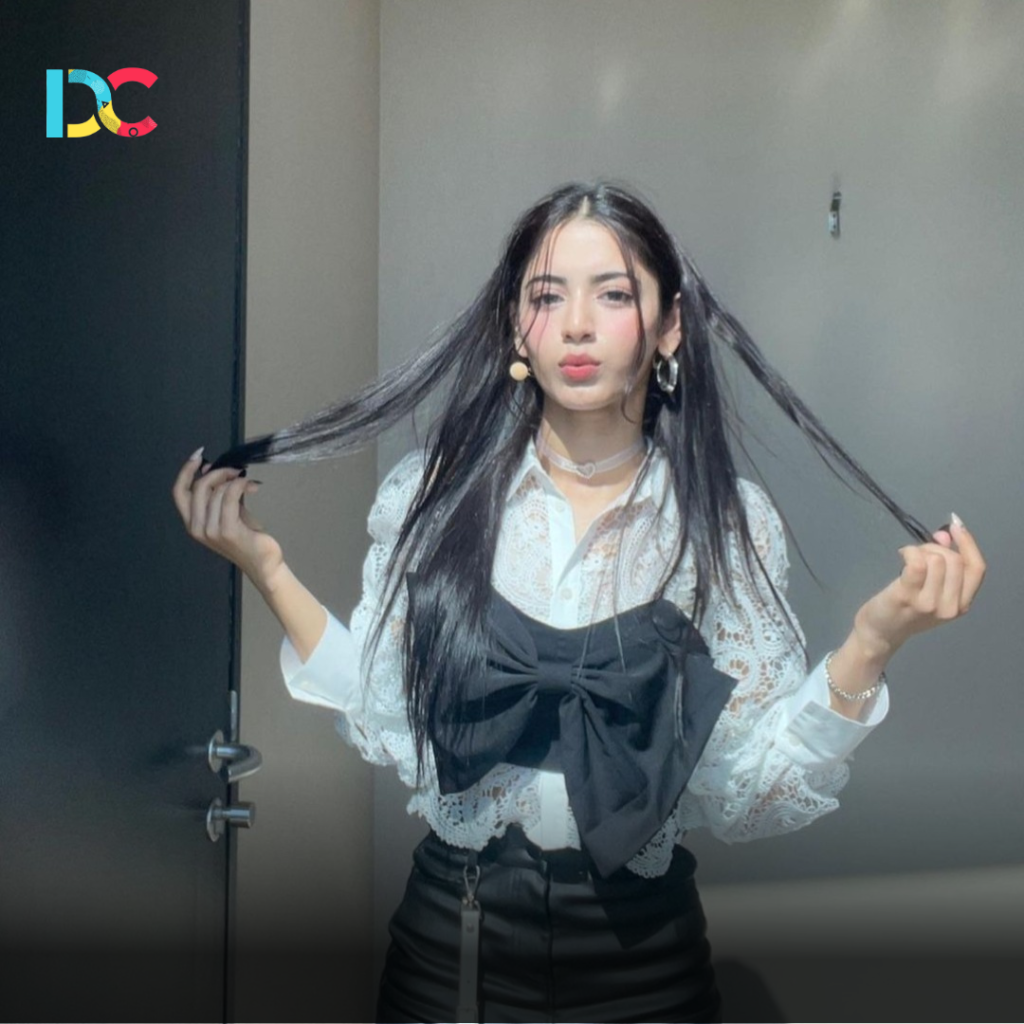
Everything about this goes beyond just entertainment. For the younger generation in India, it is more than just about music. It is an initiative of a culture that promotes self-expression, diversity, and inclusivity. K-pop idols have become role models for many Indian youths who feel empowered by their message of self-love and acceptance. K-pop has also helped break down cultural barriers and has fostered a sense of global community among Indian youths who share a passion for the genre. The success story of Aria only lets us know how the craze of K-pop continues to gain traction in the country and it will be exciting to see how this genre will continue to inspire young people in the years to come.
Follow us for more @discultured
Entertainment
Uttarakhand Wedding Awards 2025: Celebrating the State’s Journey Towards Becoming a Premier Global Wedding Destination
Uttarakhand Wedding Awards
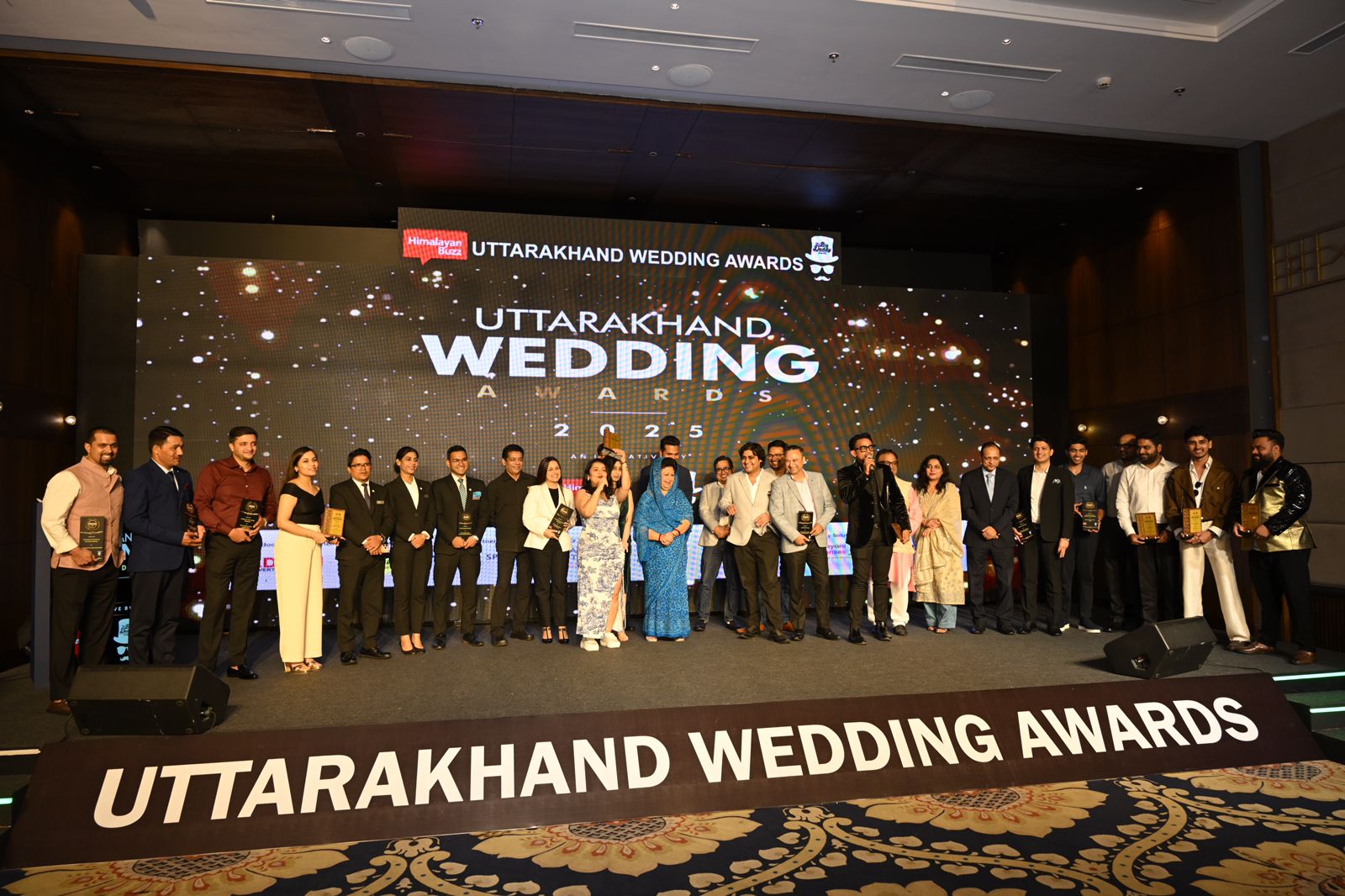
Dehradun, 14th September 2025 – The Uttarakhand Wedding Awards 2025 lit up the evening skies at Hyatt Centric, Dehradun, with a dazzling celebration of excellence, creativity, and vision in the wedding industry.
Organized by Himalayan Buzz Admedia LLP, in association with The Big Daddy Events Co., the event brought together leaders from the wedding, hospitality, and tourism sectors to recognize excellence and lay the foundation for Uttarakhand’s emergence as a world-class wedding destination.
The glittering evening featured an exclusive guest list of wedding planners, hoteliers, tourism officials, and government representatives, all working collectively towards transforming Uttarakhand into a premier hub for wedding tourism.
Dignitaries Grace the Occasion
The awards night witnessed the presence of eminent dignitaries who have been instrumental in shaping the state’s cultural and tourism landscape. The event was graced by Maharani of Tehri Garhwal and Member of Parliament, Mala Rajya Laxmi Shah, attending as the Chief Guest. Her presence added a touch of regal elegance and highlighted the importance of preserving Uttarakhand’s rich heritage while promoting it as a global wedding destination.
Accompanying her were other distinguished Guests of Honor, including Mrs. Tripti Juyal Semwal, Vice President of Maya Devi University, Mrs. Poonam Chand, Additional Director at Uttarakhand Tourism, and Shri Saurabh Thapliyal, Mayor of Dehradun. Their combined presence underscored the collaborative effort between government bodies, academia, and industry leaders to elevate Uttarakhand’s wedding tourism ecosystem.
Strategic Industry Dialogue – Vision & Mission 2030
One of the evening’s most significant highlights was a panel discussion on “Uttarakhand Wedding Vision & Mission 2030 – Building a Sustainable, Spiritual, and World-Class ‘Wed in India’ Destination.”
The panel featured some of the most prominent voices from the wedding and hospitality sectors. Esteemed panelists included Ravi Goel, Co-founder of The Big Daddy Events; Gaurav Chanana, Whistling Teel; Rishabh Panchhi, Panchhi Events; Ayu Tripathi, Director, Aahana Resort, Jim Corbett; Ajit Singh Gandhi, General Manager, Hyatt Centric Rajpur Dehradun; and Malabika Das, Director of Celebrations, Hyatt Regency Dehradun Resort and Spa.
The session was moderated by Avinash Mishra, Founder of Badmash Kebabi, ensuring a seamless exchange of ideas and perspectives.
Recognizing Excellence – Winners of Uttarakhand Wedding Awards 2025
The evening culminated in honoring outstanding individuals and organizations whose work has set new benchmarks for quality, creativity, and service in the wedding industry. From luxury resorts and planners to designers and service providers, each winner demonstrated exceptional innovation and dedication to building world-class wedding experiences in Uttarakhand.
Uttarakhand Wedding Awards 2025 – Winners
- Best Wedding Venue – Luxury Hotel – Taj Mussoorie Foothills, Dehradun
- Best Wedding Venue – 5 Star Hotel – Hyatt Regency Dehradun Resort and Spa
- Best Wedding Venue – Luxury Resort – Aahana Resort, Jim Corbett
- Best Wedding Venue – Resort – Saraca Resort & Spa, Corbett
- Best Wedding Venue – Ganges Beach – Summit by the Ganges, Rishikesh
- Best Wedding Venue – Heritage Hotel – Hotel Chevron Fairhavens, Nainital
- Best Wedding Venue – Bespoke – Hyatt Regency Dehradun Resort and Spa
- Best Wedding Venue – Mid Size – Regenta, Dehradun
- Best Wedding Venue – City – Hyatt Centric, Rajpur Road, Dehradun
- Best Wedding Venue – Midscale Destination Wedding – Pride Premier Solitaire, Dehradun
- Best Wedding Venue – Lakefront – The Lake Resort, Naukuchiatal
- Best Wedding Venue – Lawn – Qupid by Saffron Leaf
- Best Wedding Venue – Pre-Wedding Ceremonies – The Fern Brentwood Resort, Mussoorie
- Best MICE Venue – Hyatt Centric, Rajpur Road, Dehradun
- Upcoming Luxury Wedding Venue – Paatlidun Safari Lodge
- Best Wedding Venue – Riverside – Maldevta Farms, Dehradun
- Best Wedding Venue – Boutique Resort – AAR Resorts & Spa
- Best Bakery – Wedding Cakes – Ellora’s Melting Moments
- Best Wedding Photographer – Intenselovestory by Kuldeep Semwal
These winners are not only redefining the wedding landscape of Uttarakhand but also helping the state gain recognition as a leading destination for grand celebrations and luxury weddings.
Leadership Speaks
Sharing her thoughts on the event, Namrata Bhandari, Editor-in-Chief, Himalayan Buzz Magazine, stated:
“Uttarakhand is blessed with a rare combination of breathtaking landscapes and world-class hospitality. Through these awards, our aim is to spotlight the talented individuals and organizations working tirelessly to make the state a top choice for weddings and celebrations.”
Adding to this, Gauraveshwar Singh, Co-founder, Himalayan Buzz, remarked:
“The Uttarakhand Wedding Awards are not just about recognition but about building a collaborative platform that unites the wedding industry. This initiative is a step forward in positioning Uttarakhand as a global wedding hub while fostering sustainable growth and innovation.”
About Uttarakhand Wedding Awards
The Uttarakhand Wedding Awards is a flagship initiative by Himalayan Buzz Admedia LLP. The awards celebrate individuals and organizations driving growth in the wedding and events industry while promoting Uttarakhand as one of India’s most desirable wedding destinations.
With Himalayan Buzz at the forefront, the initiative focuses on fostering excellence, sustainability, and innovation, ensuring that Uttarakhand’s wedding tourism sector thrives and competes on a global stage.
Media Contact:
Himalayan Buzz Admedia LLP
📧 Email: info@himalayanbuzz.com
📞 Phone: +91-70373 99960
#UttarakhandWeddingAwards #WedInUttarakhand #UWA25
Also Read: National Food Awards 2025: A Celebration of Legacy, Labour, and Local Wisdom in Indian Food
Entertainment
Weekly Pop Culture Recap: Beyoncé Wears Custom Manish Malhotra at Cowboy Carter Tour Stop in Paris, Prada SS26 Criticized for Uncredited Use of Kolhapuri-Inspired Sandals

It’s been an interesting week across pop culture and fashion, full of moments that made us pause, think and take note. Catch up on everything that mattered, all in one place.
Beyoncé Wears Custom Manish Malhotra at Cowboy Carter Tour in Paris

Beyoncé delivered a sartorial statement during the Paris leg of her Cowboy Carter Tour 2025, commanding the stage at Stade de France in a custom creation by Indian couturier Manish Malhotra. The look not only complemented her performance but also marked a milestone moment for Indian design on an international platform.
The ensemble was an interplay of glamour and Western-inspired edge. A sleek black bodysuit, encrusted with crystals, was paired with thigh-high embellished boots and structured metallic detailing at the waist bringing together precision craftsmanship with bold stage presence.
Prada Spring/Summer 2026 Faces Backlash for Uncredited Use of Indian Kolhapuri Chappals

Prada’s Spring/Summer 2026 Menswear Show, held on June 22 at Fondazione Prada’s Deposito in Milan, is under fire. While the collection, designed by Miuccia Prada and Raf Simons, featured a range of soft, youthful silhouettes and minimalist set design, it was the footwear that grabbed attention online, especially from Indian audiences.
The flat, tan leather sandals with toe loops bore a striking resemblance to Kolhapuri chappals which is a traditional Indian footwear handcrafted in Kolhapur, Maharashtra. These chappals, protected under India’s Geographical Indication (GI) tag since 2019, are not just functional items but cultural artifacts passed down through generations.
Despite the obvious inspiration, neither the show notes nor the invitations made any reference to India or the artisans behind the original design. The omission has led to criticism, with many accusing the luxury fashion house of cultural appropriation. People are pointing out how global fashion brands often borrow from South Asian aesthetics without acknowledging the communities they come from.
While some Indian users expressed pride at seeing a homegrown design on a global runway, the larger conversation centered on the industry’s persistent blind spot when it comes to giving credit where it’s due. This oversight feels tone-deaf and all too familiar.
All Seven BTS Members Complete Military Service, Fans Eager for What’s Next
BTS is once again dominating conversations worldwide, and this time it’s for a long-awaited reason. All seven members—RM, Jin, Suga, J-Hope, Jimin, V, and Jungkook—have officially completed their mandatory military service in South Korea. With Suga, the final member, discharged on June 21, 2025, after serving as a social service agent, the group’s chapter of enlistment has come to a close. Naturally, anticipation is at an all-time high as fans eagerly await what’s next for the global superstars.
Stray Kids’ Seungmin Joins Burberry as New Brand Ambassador

British luxury label Burberry has officially announced Seungmin of Stray Kids as its newest brand ambassador. In a statement released on June 17, the fashion house praised Seungmin’s individuality and creative spirit, noting that his bold presence in both music and fashion aligns seamlessly with Burberry’s vision.
Creative director Daniel Lee welcomed him to the brand, saying, “We’re excited to have Seungmin join the Burberry family. His distinct style and energy bring a fresh perspective to our ongoing journey.” Reflecting on the partnership, Seungmin shared, “Becoming a Burberry ambassador is truly an honor. The brand’s heritage and identity inspire me, and I’m looking forward to what we’ll create together.”
Also Read: Sabrina Carpenter’s Man’s Best Friend and the Politics of Pop Imagery
Follow us for more : Dis_cultured
Entertainment
Sabrina Carpenter’s Man’s Best Friend and the Politics of Pop Imagery
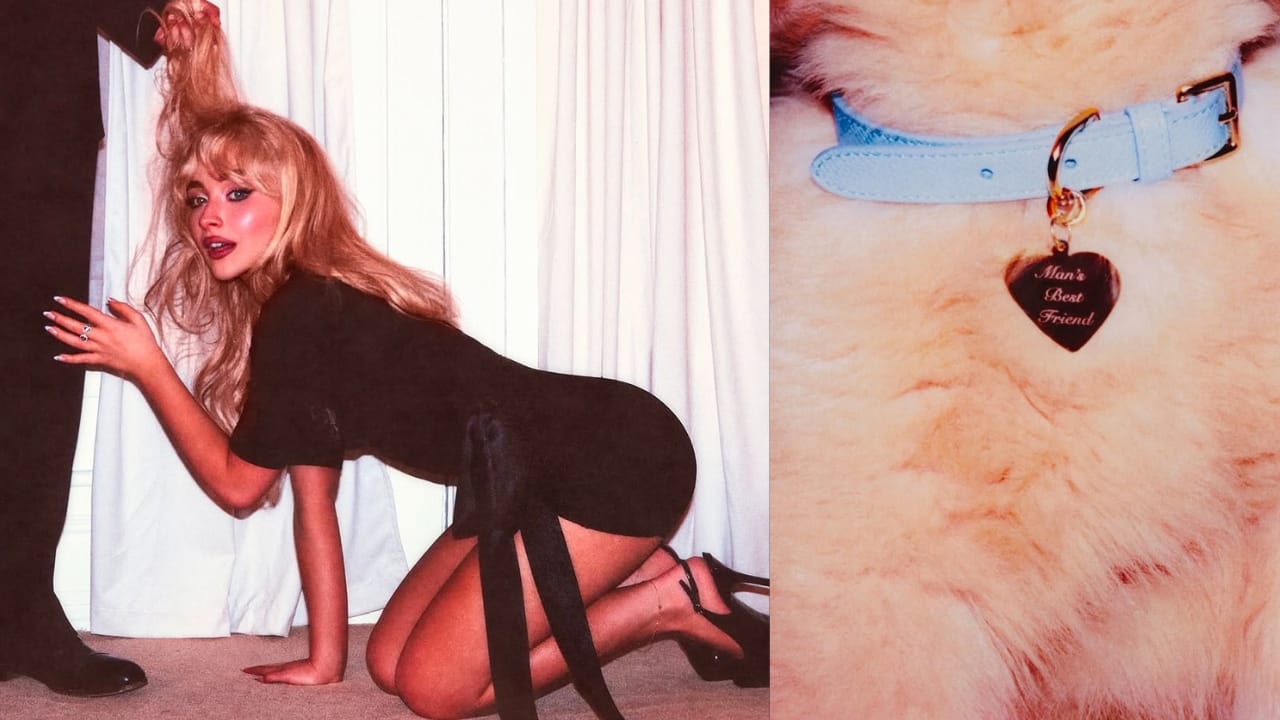
In the days following the reveal of Sabrina Carpenter’s new album cover, the internet did what it does best. It reacted, dissected, and divided. Here we unpack the cultural tensions beneath the surface, reading the album art as a lens through which broader anxieties about power, femininity, and performance in pop culture come into focus.
In an era where pop feminism coexists uneasily with the commodification of outrage, cultural lines are being redrawn by the churn of online discourse. On the internet, where context is scarce and opinion is currency, anything can lead to a global debate. The internet can crown a feminist icon on Monday and call for her cancellation by Wednesday, all while parsing a single image. That tension between performance and power, irony and impact is at the heart of the controversy surrounding Sabrina Carpenter’s forthcoming album, Man’s Best Friend.
Unveiled on June 11, 2025, the cover art didn’t whisper for attention but demanded it. Sabrina Carpenter, on her hands and knees in a black mini-dress and stilettos, is shown with her hair being pulled by an unseen man. The second picture posted had a dog wearing a collar that reads, unmistakably, “Man’s Best Friend.” The visual struck a nerve and not just one.
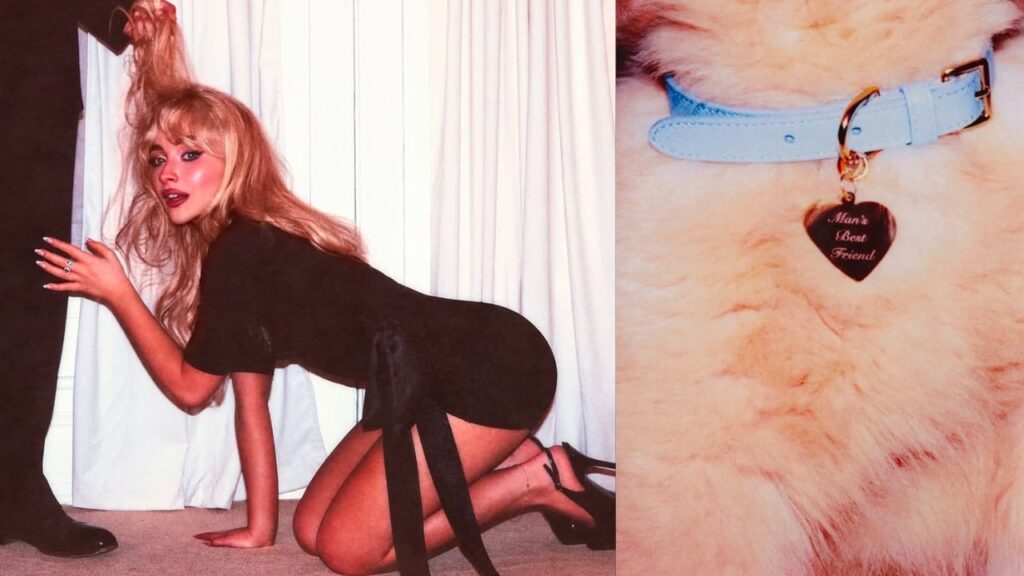
The Outrage: Misogyny in the Name of Art?
For many, the image crossed a line. Critics called it “degrading,” “tone-deaf,” and even “dangerously close to abuse imagery,” pointing to the submissive pose and hair-pulling as problematic signifiers. In a time where conversations about gender, consent, and objectification are more talked about than ever, the cover was accused of glorifying the very power imbalances feminism fights to dismantle.
What stung most for some was the perceived trivialization of violence against women (intentional or not). Sabrina Carpenter’s sizable young, largely female fanbase only amplified concerns, raising questions about the messages embedded in pop culture’s most shareable content. After all, in the age of the algorithm, an image rarely comes with its intended context.
The Defense: Satire, Subversion, and a Pop Provocateur
Yet, to others, the outrage missed the point entirely. Supporters argue the image is a satirical send-up of how women are reduced, infantilized, and leashed (figuratively and literally) by societal expectations. Placed alongside the lead single Manchild, which skewers immature male behavior, the cover reads to many as a deliberate, exaggerated critique of the roles women are made to play.
Her defenders have compared her to artists like Madonna, whose 1980s provocations once drew similar ire but are now seen as landmarks of feminist disruption. Carly Simon even entered the fray, calling Carpenter’s image “tame” compared to her own controversial Playing Possum cover from 1975, and reminding critics that art and outrage have always danced closely.
What This Debate Really Reveals
More than a debate about one pop star’s choices, the Man’s Best Friend controversy highlights the increasingly fragile space where art meets activism, and where interpretation often overrides intention. It’s not just that the image divided audiences but also revealed the divisions within feminism itself. On one side is a cautionary stance: artists have responsibility, and imagery matters, particularly when consumed by millions when many of them are young and impressionable. On the other is a belief in feminist autonomy, in the power of women to use even the language of submission to challenge the systems that created it.
These aren’t new debates but the speed and volume of digital culture mean they play out faster, louder, and with fewer shades of gray. As we all know the internet leaves a very little room for nuance. What might have once been an artistic provocation now becomes a 10-second flashpoint, judged not in essays or reviews, but in quote tweets and comment sections.
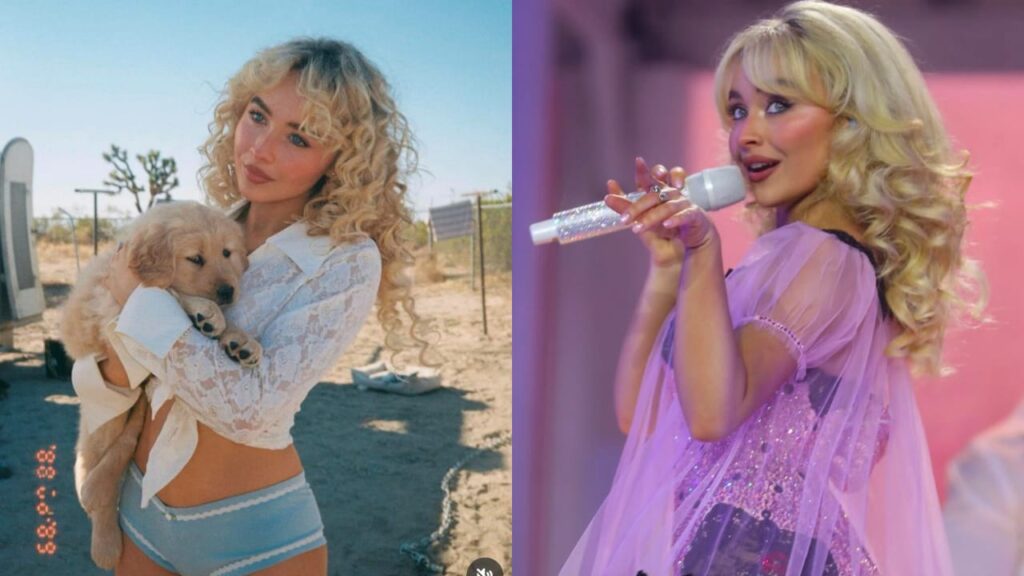
Between Empowerment and Exploitation
So where does Man’s Best Friend really land in the ongoing conversation about power, gender, and performance in pop culture? The answer depends largely on whether one interprets Sabrina Carpenter’s choices as a reinforcement of a long-standing power fantasy or a subversive attempt to expose and dismantle it from within. Perhaps the discomfort the image provokes is itself the point which is an intentional provocation meant to challenge viewers to confront the contradictions embedded in popular representations of femininity and control. Whether it ultimately reads as a misjudged gesture or a sharp piece of cultural critique, the cover has undeniably started a necessary dialogue about how these dynamics are communicated, consumed, and contested.
It also reveals a deeper generational and ideological divide that has become increasingly pronounced in the digital age. For younger audiences who understand irony, meme culture, and postmodern self-awareness, the image might register as a playful form of rebellion, one that knowingly exaggerates in order to critique. For others, particularly those more attuned to the realities of lived inequality and the ongoing struggles against gender-based violence, the visual treads dangerously close to territory that feels all too real and raw, regardless of artistic intention. As pop culture continues to collapse the distance between commentary and consumption, between performance and lived experience, Man’s Best Friend functions as a cultural litmus test, measuring not just our opinions about one artist’s creative vision, but our broader anxieties and expectations surrounding representation itself.
Whether the cover is ultimately embraced as a feminist statement or condemned as a lapse in judgment, its ability to provoke such wide-reaching discourse underscores a simple but powerful reality: even in 2025, a single pop image retains the power to disrupt, divide, and demand attention, revealing just as much about the culture interpreting it as about the artist who created it.
Also Read: Your Wardrobe Might Be Reflecting a Recession
Follow us for more : Dis_cultured
-
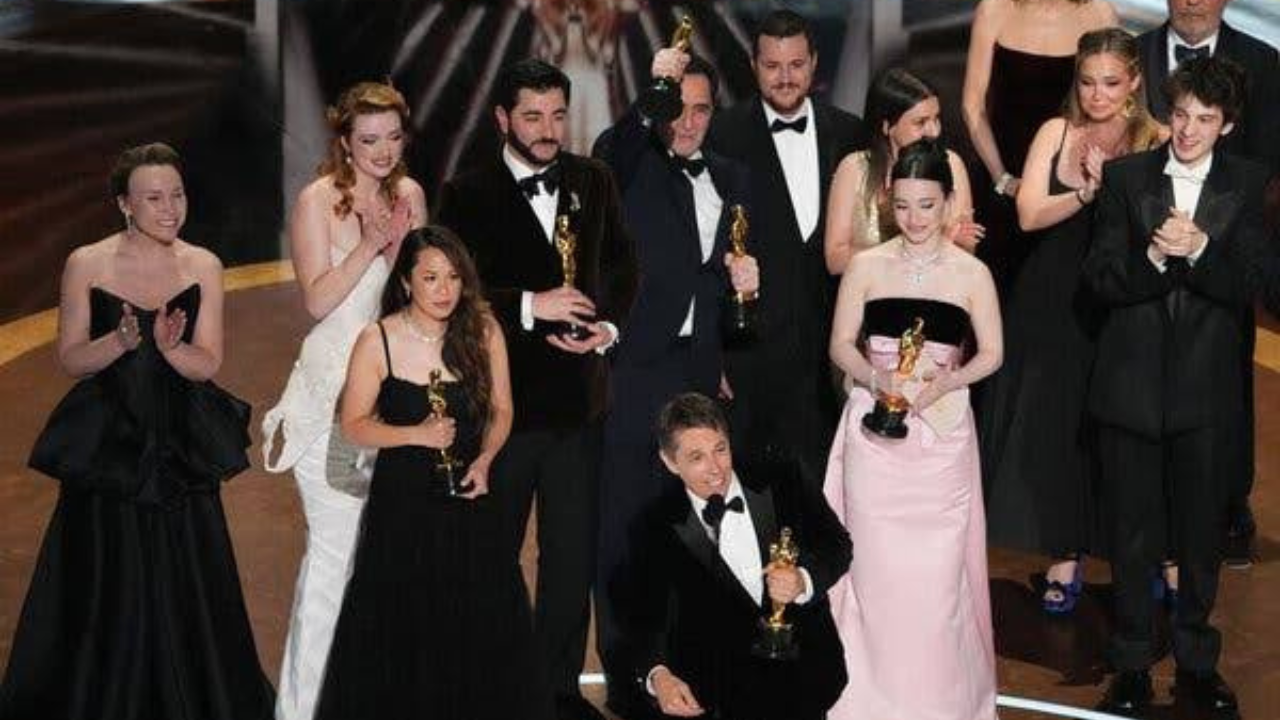
 Events12 months ago
Events12 months agoThe Most Memorable Highlights from the 2025 Academy Awards
-

 Events10 months ago
Events10 months agoWhat Indian Celebrities Wore to the Met Gala 2025
-

 Fashion10 months ago
Fashion10 months agoYour Wardrobe Might Be Reflecting a Recession
-
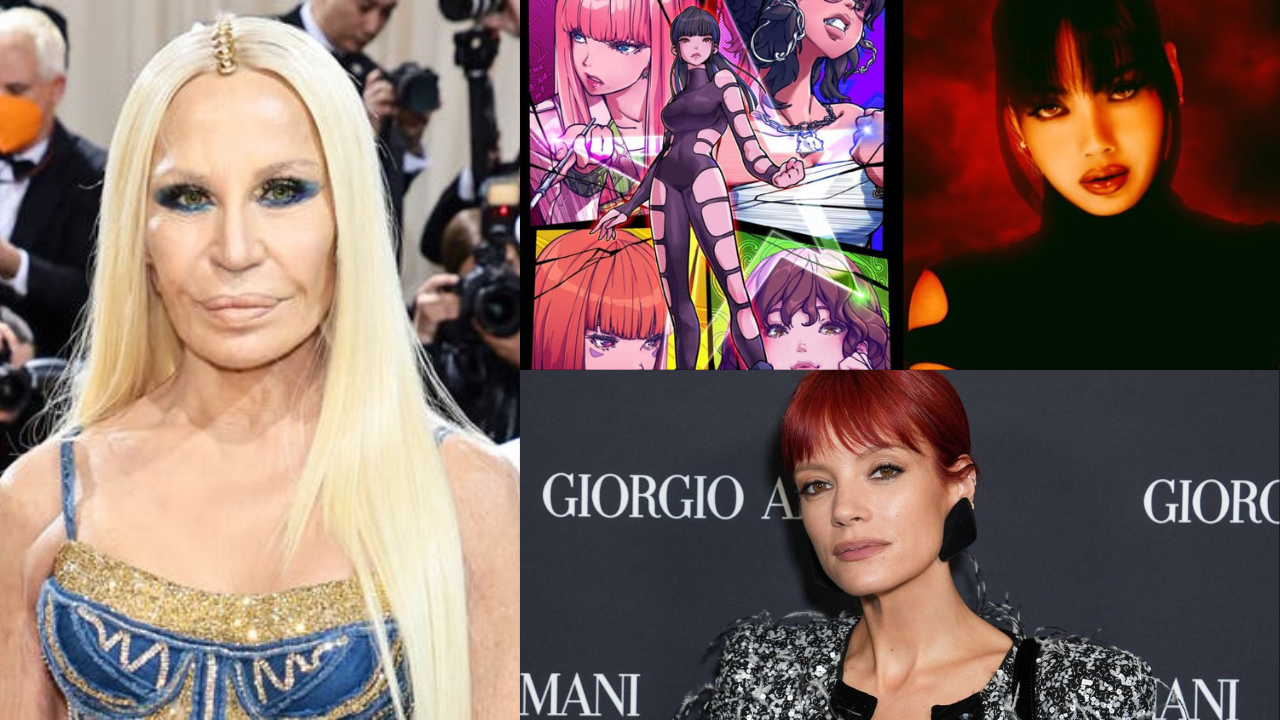
 Fashion11 months ago
Fashion11 months agoWeekly Pop Culture Recap: Donatella Versace has resigned as Versace’s Chief Creative Officer, BLACKPINK’s Lisa is branching out with her graphic novel, ALTER-EGO.
-

 Events9 months ago
Events9 months agoThe Biggest Moments for Indian Cinema at Cannes 2025 That Had Everyone Talking
-

 Fashion10 months ago
Fashion10 months agoDupatta Labeled as European Aesthetic is a Case of Cultural Erasure
-

 Events11 months ago
Events11 months agoWeekly Pop-Culture Recap: Louis Vuitton to Launch Its Own Makeup Line Led by Pat McGrath, TikTok Expands Into Local Services to Boost Small Business Engagement.
-
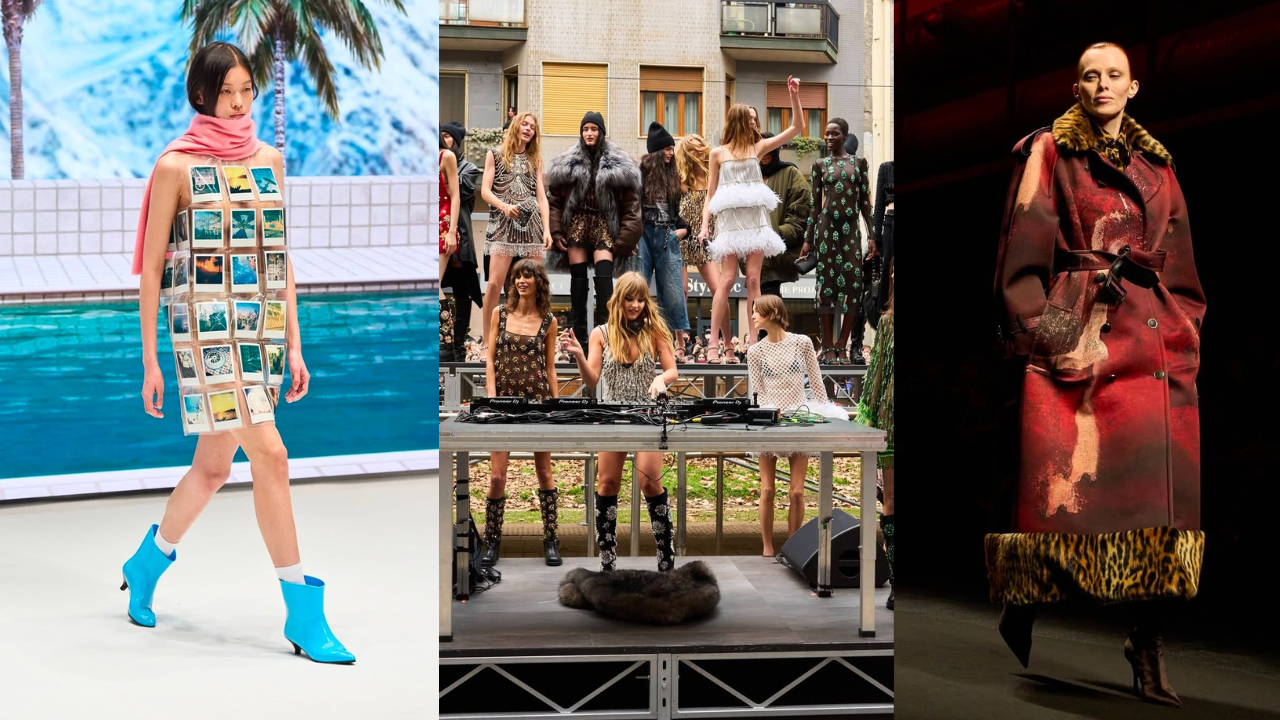
 Events12 months ago
Events12 months agoMilan Fashion Week 2025: The Biggest Highlights and Trends







